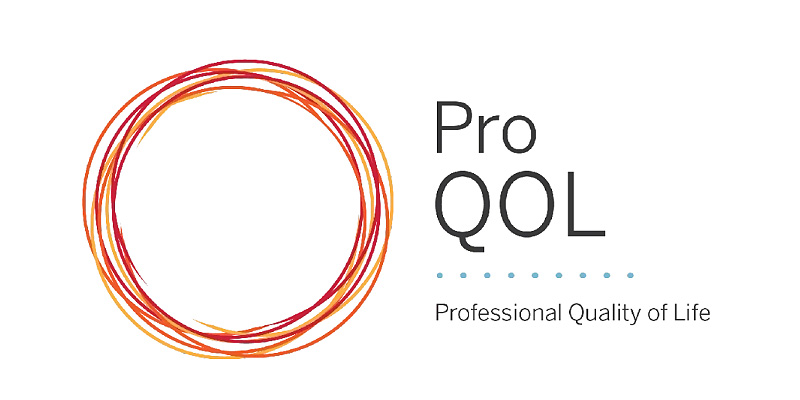The Professional Quality of Life Measure (ProQOL)
Self-Test for Compassion Satisfaction, Burnout, & Compassion Fatigue
The Professional Quality of Life Measure (ProQOL)
Self-Test for Compassion Satisfaction, Burnout, & Compassion Fatigue

Developed by Dr. Beth Hudnall Stamm and owned by the Center for Victims of Torture (CVT)
About the Assessment
The Professional Quality of Life Measure (ProQOL) is a free 30 question self-assessment test that was designed by Dr. Beth Stamm to assist helping professionals in evaluating their current levels of burnout, compassion fatigue, and compassion satisfaction.
Currently, the online version is only available in English. While the ProQOL has been translated in 28 languages, these versions must be completed manually.
The link below will redirect you to an online version of the ProQOL hosted by the Center for Victims of Torture, a mental health and human rights NGO that maintains current ownership of the ProQOL.
Note that TEND is not responsible for the privacy practices or the content of such other websites, including websites operated by affiliated entities. We provide such links only as a convenience and the inclusion of a link on any of our Sites or App does not imply endorsement of the linked website by TEND. Read our Privacy Statement.
Disclaimer
Excerpted from Stamm, B.H. (2010). The concise ProQOL manual (2nd ed.). Pocatello
The most important aspect about interpreting the ProQOL is that it is not a diagnostic test. […] The body of research on burnout and post traumatic stress disorder indicates a close kinship with each to depression. While this is useful information, depression is a general term that also is a specific diagnosis of a mental disorder and is widely and officially recognized by both the medical and the mental health communities. Therefore, it is impossible, and grievously inappropriate, to diagnose depression or any other disorder from the result of the ProQOL.
What the ProQOL can do, from a diagnostic perspective, is to raise issues to address with use of appropriate diagnostic procedures. For example, as noted above, both burnout and PTSD are frequent “co-travelers” with depression. A high score on either burnout or secondary traumatic stress, or a high score on both with a low score on compassion satisfaction, can be an augury of clinical depression that deserves treatment. […]
Despite this parallel of compassion fatigue and/or secondary trauma to PTSD, it cannot be overemphasized that these issues are a natural consequence of trauma work and not necessarily pathological in nature (Figley, 1995; Larsen & Stamm, 2008; Stamm, 1999). Given these concerns, the ProQOL can be a guide in regard to an individual’s or organization’s balance of positive and negative experience related to doing either paid or volunteer work. For an individual or an organization, high scores on compassion satisfaction are a reflection of engagement with the work being done.
